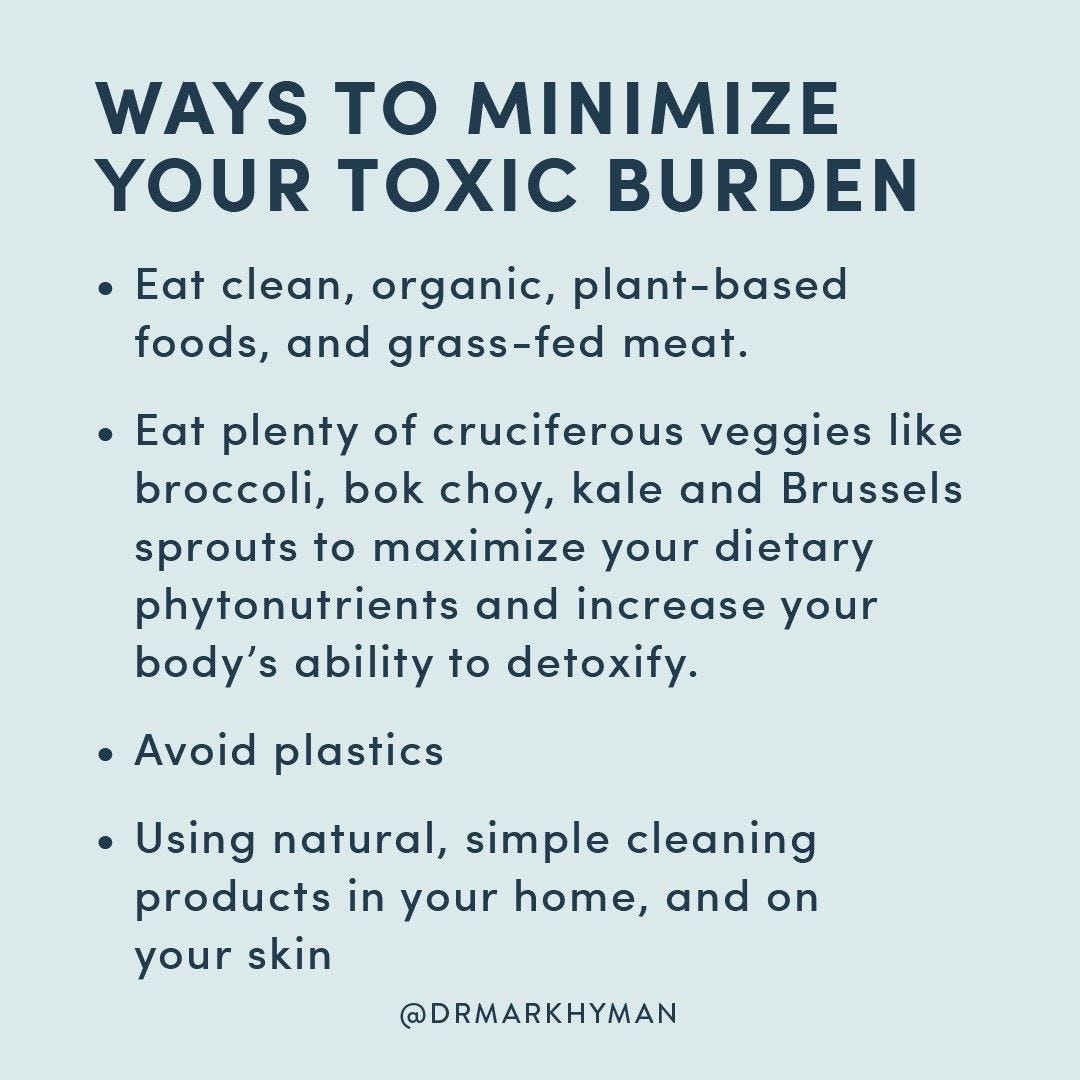ROTW: Frozen Yogurt Bark | Why Sleep Matters | POTW: The Dr. Hyman Show | Microplastics and Environmental Toxins
Frozen Yogurt Bark | Are You Prioritizing Sleep??? | The Dirty Truth About Environmental Toxins (And How to Protect Yourself)
Frozen Yogurt Bark
Today’s recipe is a great choice to have as a snack or after meal dessert, loaded with a variety of nuts and seeds, cacao nibs and coconut flakes, mixed into a nice base of coconut or grass fed, unsweetened yogurt. The simplicity of this recipe makes it great for getting the kids involved too, teaching them about healthy eating to help promote their own health!
This recipe calls for goji berries, which are great for supporting eye health, along with providing vitamins A and C. Not to mention, studies have shown that goji berries can help regulate blood sugar, mood, and liver health!
Another nutrient powerhouse are cacao nibs. These are great sources of magnesium, fiber, protein, and healthy fats, and happen to be the least processed way to enjoy chocolate - sounds like a win-win!
Give it a try and let me know what you think!
Frozen Yogurt Bark - Mark Hyman's Kitchen
Are You Prioritizing Sleep???
With the recent daylight savings change, I was asking all of my clients how they and their families were handling the spring forward time change. Every response was the same. This time around was ROUGH. I don’t know if it had anything to do with the crazy viral winter season, but it seemed to be more challenging to adjust. What I continually told my clients was to focus on resting as much as they could and try to go to bed when the kids go to bed.
Now, we’ve had a couple weeks to adjust to the new schedule. How do you feel currently? Are you still tired or feel low energy most days? Let’s dive into some tips for helping boost your energy levels and improve the quality of your sleep so you can go through your day with healthy energy levels without the need for a sugary/caffeinated beverage.
Tip #1: Reset your circadian rhythm
With the time change, it’s important to start practicing getting to bed at least 30 minutes to 1 hour earlier than you usually do since your body is still running on fall time, but the clock is thinking spring. You may not necessarily fall asleep right away, but this is prime time to do something calming while you are lying in bed, whether it’s reading a book or doing a crossword puzzle. Anything EXCEPT being on your phone or watching TV. The blue light from those devices really disrupts the natural production of seratonin that helps support quality sleep. Blue light in the evenings triggers your body into thinking it’s still daylight when it should be winding down for the night. Getting into a new routine of going to bed and getting up in the mornings at the same time every day helps regulate your circadian rhythm. If you want to read more about resetting your circadian rhythm, check out my newsletter on the topic here for more tips!
Tip #2: Get outside!
Taking in sunlight without sunglasses first thing in the morning, but also throughout the day is incredibly valuable in supporting sleep. If you get up before the sun, avoid using any electonic device until after you’ve given yourself 5-10 minutes to watch the sky light up. Remember, we need to support a healthy circadian rhythm by starting the day with getting natural light from the outdoors. Studies are showing that getting sunlight during the day helps boost seratonin, a brain chemical involved in supporting sleep.
Tip #3: Move your body
I hope this is not the first time you have heard this, but exercise, or intential movement, is great for supporting healthy sleep. It also helps provide you with healthy energy throughout the day! If you’ve ever felt tired before a workout, or a walk, how did you feel afterwards? Hopefully a bit more energized, which carries over into the rest of your day. If you are going to move your body, make sure you do at least 4 hours before bedtime, depending on the activity. High intense exercise will spike your energy and make it more challenging to fall asleep. Something more gentle and restorative like yoga or a leisure walk is a great way to wind down your day before bed.
Tip #4: Eat magnesium rich foods
Magnesium is a valuable nutrient that our bodies need to function healthily. Deficiency in this mineral has been linked to a number of health conditions, such as heart disease, migraines, insulin resistance, type 2 diabetes, Alzheimer’s and attention deficit hyperactivity disorder. You might be deficient in magnesium if you have some of these key symptoms…
Hypertension
Migraine headaches
Glaucoma
Nutrient deficiencies, including vitamin K, vitamin B1, calcium and potassium
Restless leg syndrome
Worsened PMS symptoms
Behavioral disorders and mood swings
Insomnia and trouble sleeping
Weak bones and potentially osteoporosis
Recurrent bacterial or fungal infections due to low levels of nitric oxide or a depressed immune system
Tooth cavities
Muscle weakness and cramps
Try to get a variety of magnesium rich foods into your daily diet, such as:
Amaranth
Spinach
Sunflower seeds
Black beans
Mackerel
Cashews
Flaxseeds
Almonds
Raw cacao powder or cacao nibs
If you think more assistance is needed, you can also take magnesium in supplement form. As a general precaution, talk with your primary care doctor before starting a new supplement, especially if you are on any medications.
Podcast of the Week: The Dr. Hyman Show | Microplastics and Environmental Toxins
The Dirty Truth About Environmental Toxins (And How to Protect Yourself)- 62 min
“The pervasive presence of microplastics and environmental toxins in our daily lives poses a growing threat to human health, with impacts ranging from hormonal disruption and metabolic dysfunction to immune system compromise and chronic inflammation. These contaminants, found in food packaging, water supplies, personal care products, and even the air we breathe, accumulate in the body and contribute to the rise in chronic diseases such as obesity, diabetes, cancer, and autoimmune conditions. Understanding their far-reaching effects is essential, but the good news is that the body has powerful detoxification mechanisms that, when properly supported through dietary choices, lifestyle adjustments, and targeted supplementation, can help mitigate their damage.” -Dr. Mark Hyman
Listen to this episode to understand the need to take action to reduce toxin exposures, reverse existing damage, and build a foundation for long-term well-being!






